As we age, it’s common to experience a decrease in balance and stability, which can lead to falls and injuries. As per 2018 Physical Activity Guidelines for Americans, incorporating balance exercises into your daily routine can significantly improve your stability and reduce the risk of falling for older adults.
It’s important to know where to start with balance exercise, and which movements to focus on for the best results. Here are six balance exercises for seniors that are particularly effective for seniors looking to improve their confidence during everyday life.
Why Balance is Important for Seniors
Balance is a crucial component of overall physical health, and it becomes even more important as you get older. Many seniors will experience a decline in balance due to age-related changes in their body such as decreased muscle strength, changes in vision and hearing, and other nervous system changes.
Unfortunately, poor balance can be a major contributor to falls, which can result in serious injuries like pelvic fractures, hip fractures, head injuries and even death for older adults. In fact, falls are among the leading causes of injury-related deaths among seniors. Research shows that older adults who stay active and exercise regularly can significantly reduce the risk of falls and maintain their independence throughout their lifespan. In addition to preventing falls, good balance can also help to improve your posture, coordination, and stability during daily activities.
The benefits of balance training are undeniable. So, how can you get started?
The Top 6 Balance Exercises for Seniors
There are so many balance exercises for seniors to choose from that it can be overwhelming. The most important part of any exercise program is figuring out where you’re starting from and finding exercises that fit your balance capabilities, available resources, and comfort level.
The following list of exercises for seniors is by no means a definitive list, but they should act as a good starting point for seniors to start working on their balance and make positive changes for their lifestyle.
1. Single-Leg Balance
This exercise is a classic and excellent exercise for improving balance, stability, and endurance. To perform this exercise, stand with your feet hip-width apart and shift your weight to one leg. Lift your other foot off the ground and balance on one leg for 30 seconds, or as long as you can before losing balance or becoming tired. Repeat on your other leg. For an added challenge, close your eyes while balancing.
2. Tandem Walking
Tandem walking is another great exercise for improving balance and stability while moving. Start by standing with your feet together and arms at your sides. From there, take a step forward with one foot, placing the heel of that foot directly in front of the toes of the other foot. Then, take a step forward with the other foot, placing the heel directly in front of the toes of the first foot. Repeat this pattern for 10 steps, then turn around and walk back. For an added challenge, walk backwards instead of turning around.
3. Sideways Walking
It is greatly noticed that elders have sideways instability after a certain age, but with sideways walking they can improve lateral stability and balance. Both of these benefits are of rarely trained exercises in the everyday lives of most seniors. Start by standing with your feet together and arms at your sides. From there, take a step to the right with your right foot, then bring your left foot to meet your right foot. Repeat this pattern for 10 steps, then switch sides and repeat. For an added challenge, try crossing your feet over each other while stepping.
4. Standing on Foam
This exercise is a great option for improving balance while standing on unstable or uneven surfaces. Start by standing on a foam pad or cushion with your feet hip-width apart. Try to maintain your balance for 30 seconds without letting your feet touch the ground. For an added challenge, stand with your feet touching or close your eyes while standing on the foam.
5. Marching in Place
This simple but effective exercise is a great choice for improving balance and coordination on alternating legs. To start, stand with your feet hip-width apart and arms at your sides. From there, lift one knee up towards your chest as high as you can, then lower it back down to the floor. Repeat with your other leg, alternating legs for 30 seconds or until you become tired. For an added challenge, pause for three seconds while your knee is in the air.
6. Toe Raises
Toe raises is another great way to gain physical fitness for seniors. It help improve balance and strength in the lower legs while also helping develop balance.Start by standing with your feet hip-width apart and arms at your sides, or on your hips. Lift both heels off the ground by rising up onto the balls of your feet, hold this position for a few seconds if you can. Lower your heels back down to the ground with control while maintaining your balance. For an added challenge, try this exercise while standing on one leg or alternating between legs.
How to Stay Safe During Balance Exercises
While balance exercises can definitely improve your stability and prevent your risk for falls, it’s especially important to prioritize safety during routine exercise for seniors where losing balance is a possibility. Here are some helpful tips to help you stay safe during balance exercises:
- Use a sturdy chair or wall for support when needed. Regardless of your experience level, it’s important to have something stable to hold onto in case you lose your balance.
- Wear proper footwear, or not footwear. Try wearing shoes with non-slip soles that fit you well and provide good support for your feet. Avoid shoes with high heels or open toes if possible and make sure that they are tied securely.
- Work on a familiar surface. Be sure to start with balance exercises on a stable surface before progressing to an unstable one, such as foam or a balance disc. Before you start you balance exercise, always make sure your surface is clean and free of debris.
- Start slow and gradually increase intensity. Even if it’s tempting, try not to push yourself too hard too quickly. Start with easier exercises and gradually increase the intensity and duration over time.
- Improve balance by strengthening your core. A strong core supports proper alignment and stability, allowing for better balance during various activities and reducing the risk of falls.
By following these safety guidelines, you can minimize the risk of injury and get the most out of your balance exercises. Remember to always listen to your body and stop if you feel any pain or discomfort. If you have specific questions, be sure to talk with your doctor or physiotherapist.
Conclusion
Incorporating these six balance exercises into your daily routine can significantly improve your stability and reduce the risk of falling. Enjoy the benefits of exercise for seniors by trying to do each exercise everyday and adjusting your setup as needed for safety. Then, gradually increase the duration as you become more comfortable with the exercises. Remember to always check with your doctor before starting any new exercise program or any new health advice. With a little work and determination, you can improve your balance for a greater sense of confidence and independence in your daily activities.

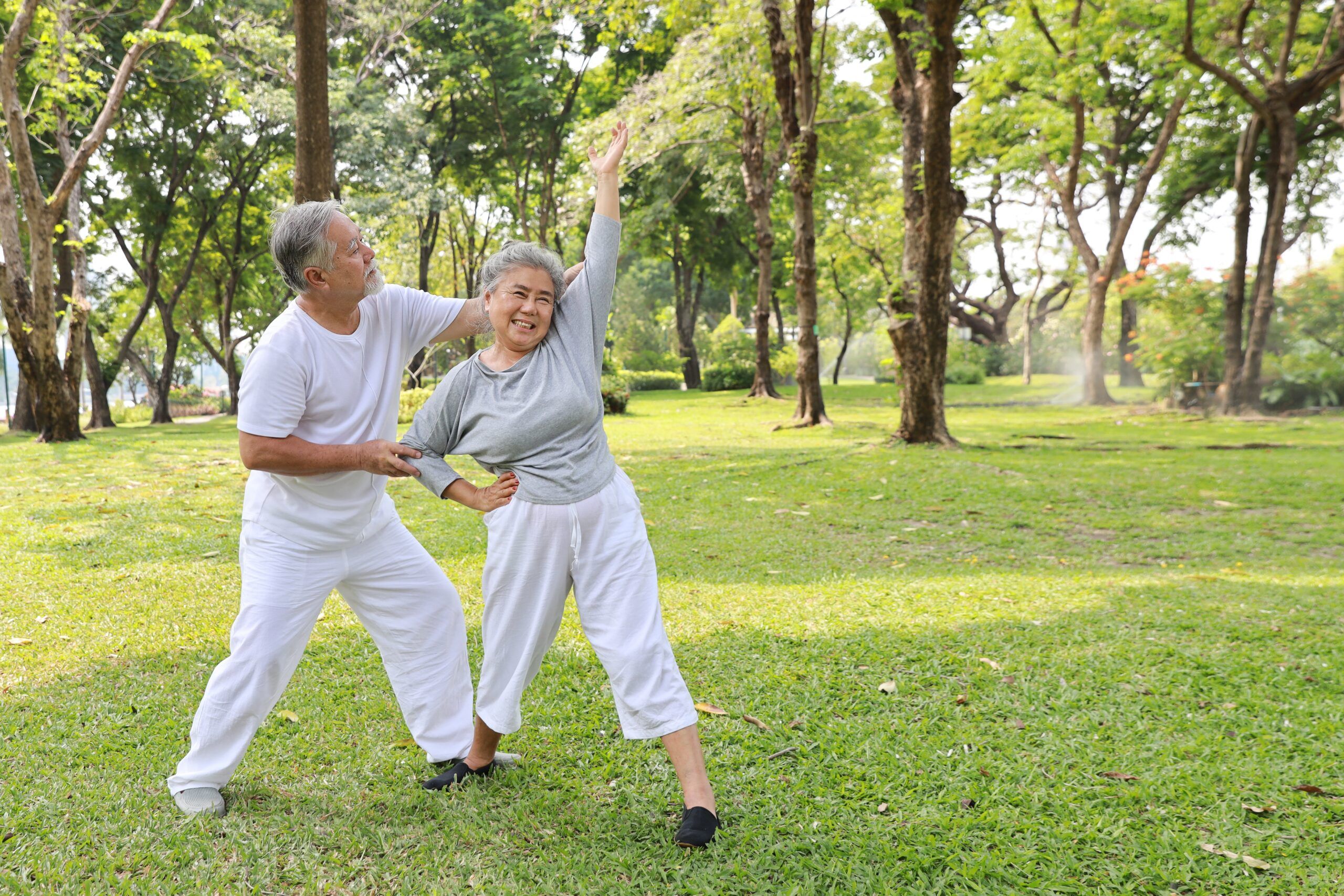
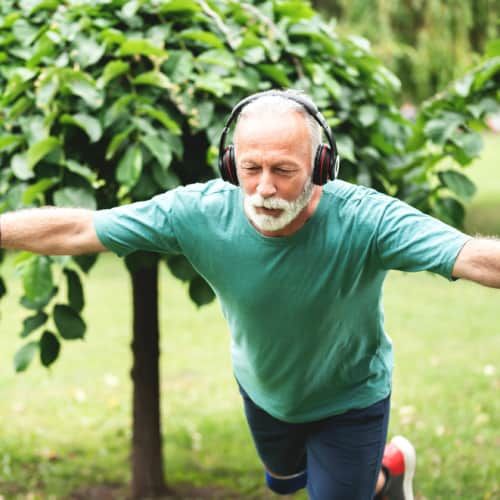
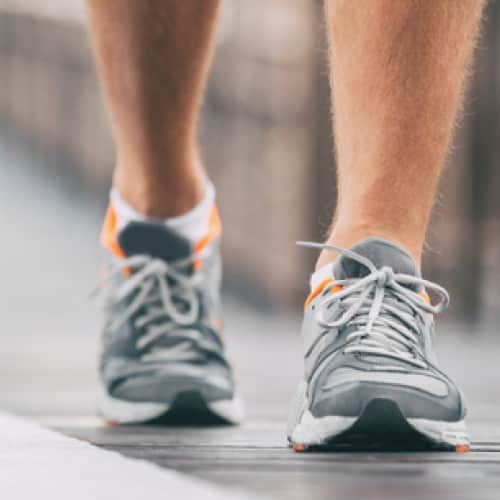

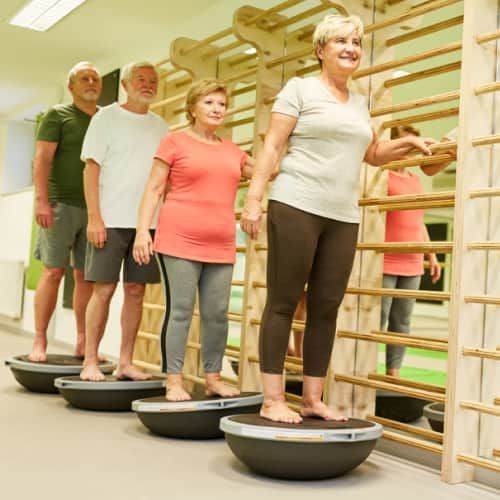
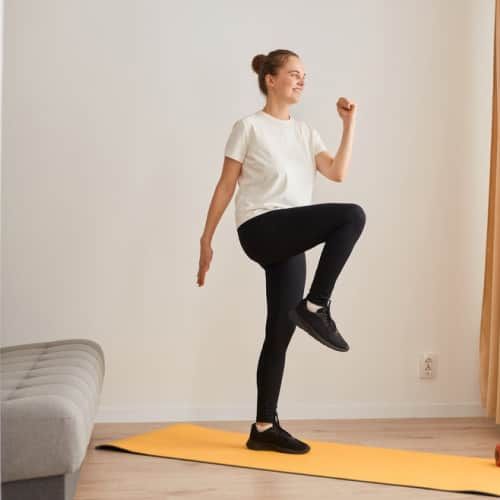
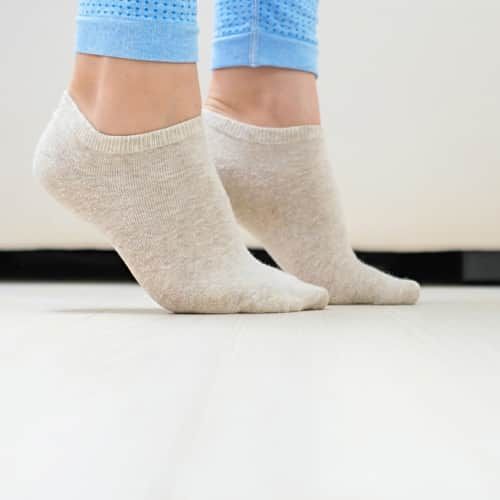


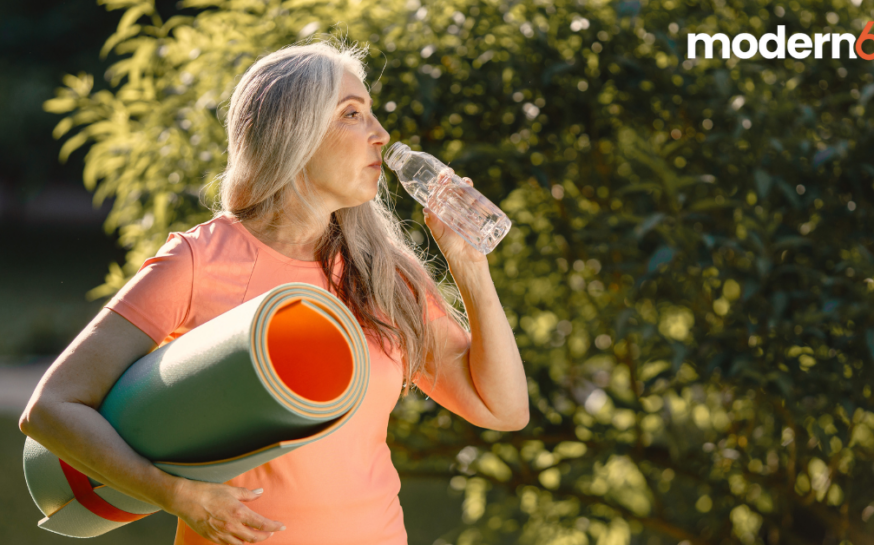


There are no comments yet